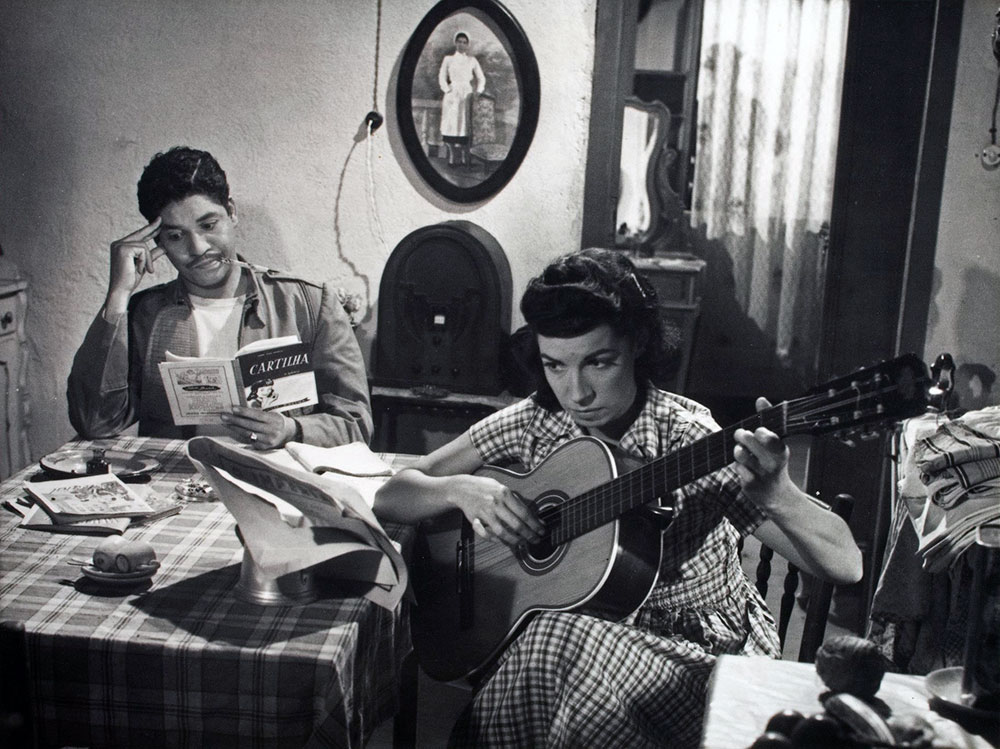The Brazilian filmmaker Alberto Cavalcanti led a spirited, cross-continental career. While working as an architect in Paris, he met and eventually began working as a set designer in the French avant-garde film scene. Cavalcanti directed his first film in 1926, a silent experimental city symphony titled Nothing But Time that depicted the everyday lives of Parisians. After spending decades making films in England under both the GPO Film Unit and Ealing Studios—and therefore armed with European filmmaking sensibilities—Cavalcanti returned to Brazil in 1950 to head up the ill-fated production company Companhia Cinematográfica Vera Cruz, which went bankrupt only five years later. It was during this short period that Cavalcanti made A Real Woman (1954), a well-polished social satire thinly disguised as a romantic comedy about a nurse who marries two of her patients without the other knowing.
A Real Woman opens on Bamba (Colé Santana), a petty street criminal who lands himself in the infirmary after a scuffle with the cops. There, Bamba falls in love with his nurse, Amélia (the widely popular Brazilian singer Inezita Barroso in an early film role.) Because the hospital strictly employs unmarried nurses, and Amélia loves her job, the pair must get married in secret. As if Amélia didn’t have enough trouble reforming her first husband, her new patient Lauro (Valdo Wanderly), a wealthy playboy with a thing for nurses and a nosy aunt, falls in love with Amélia as well. Then, he feigns fatal agony to coax her into marrying him as his dying wish. When he survives, Amélia is left an accidental bigamist against her own will, but that doesn’t stop her from enjoying the splendor that naturally comes with being a rich man’s wife.
Much of A Real Woman’s comedy is found in Amélia’s increasing entanglement in the web of lies designed to control her situation—a trap that puts Brazilian society’s rigid gender and class differences in the mid-1950’s into sharp relief. But the real heart of the film is the simmering chemistry between Santana, a well-known comedian in his day, and Barroso. Amélia’s scenes with Bamba crackle with life, while the scenes that show her contrived lifestyle with Lauro and his wealthy family fall flat; in turn, commenting on the vast material gulf between her high- and low-class marriages. For nearly 70 years, A Real Woman was thought to be lost. Its restoration, which won the 2023 Online Heritage Restoration Contest at the Locarno Film Festival, marks a significant shift in the way Cavalcanti, who has been traditionally thought of as a filmmaker with more ties to Europe than Latin America, is discussed on the international stage as more of his Brazilian work is brought to the forefront.
A Real Woman screens this afternoon, and January 16, at the Museum of Modern Art as part of the series “To Save and Project.”



